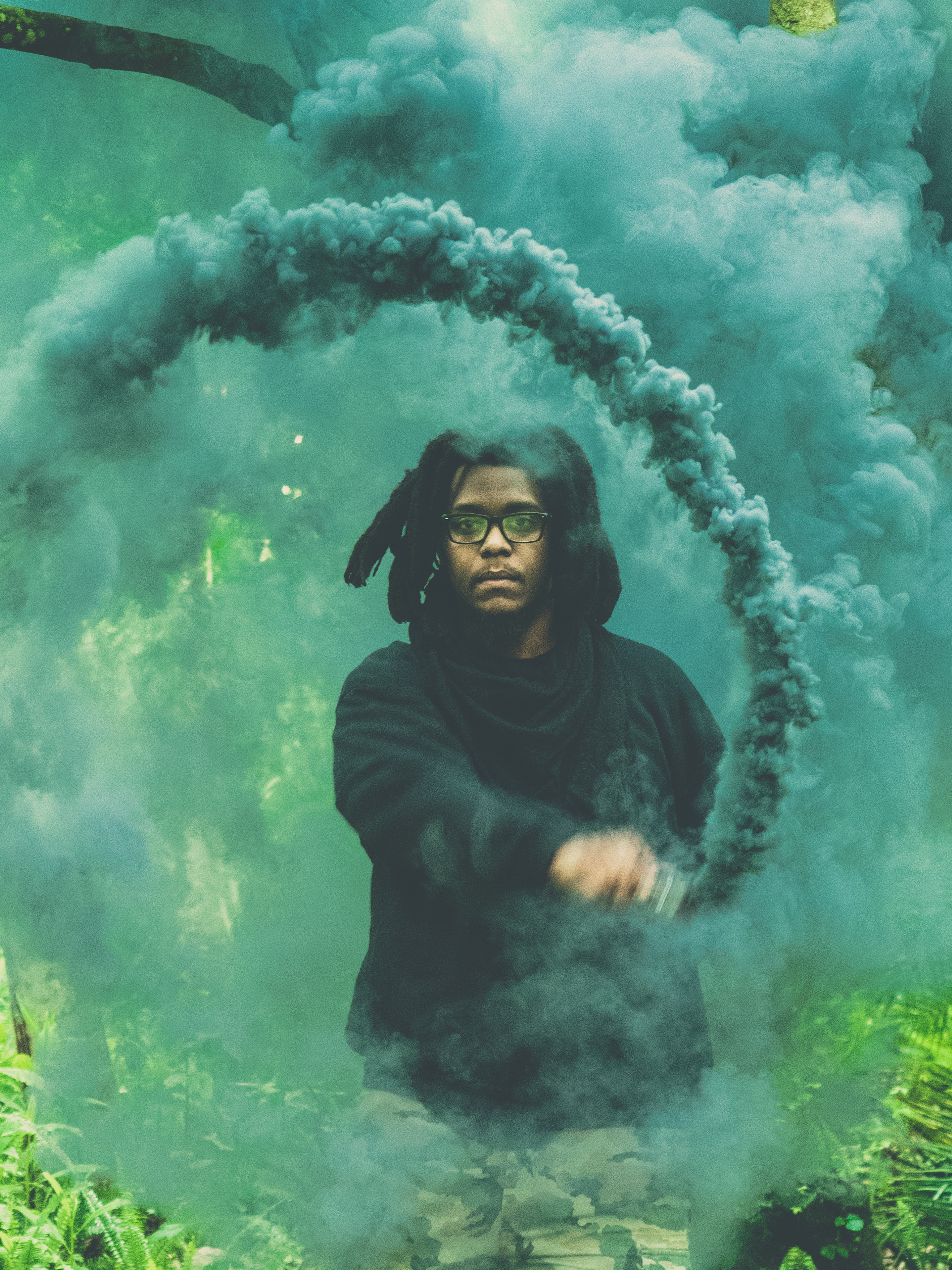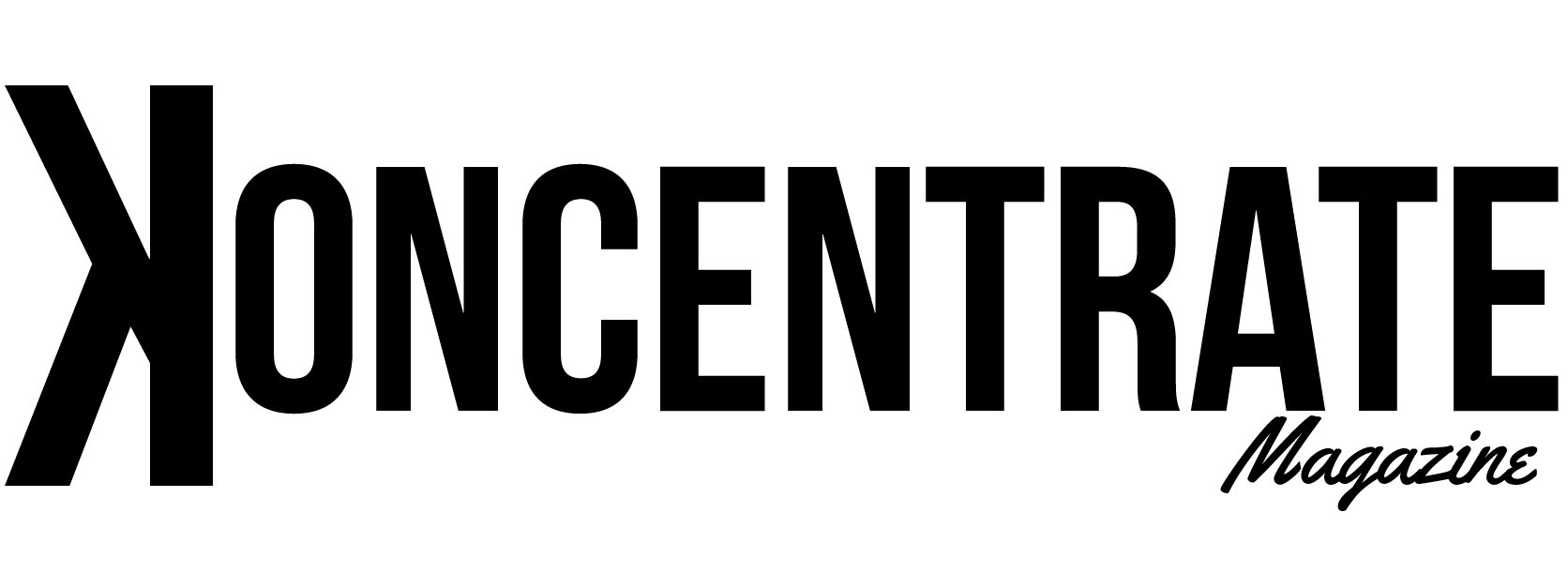
26 Feb Beneath The Surface: Sean Shakespeare
Central Florida’s own Sean Shakespeare may be relatively new to underground hip-hop, but he spits like a seasoned veteran. One-third of the group Table For Three, Sean has been earning local props for his intense, in-the-pocket flow—and was even featured in Orlando Weekly as one of “14 local artists who are reshaping the Orlando music scene.” Teaming up with producer Swamburger and his Second Subject collective, the emcee and producer have developed a fresh sound—vaguely reminiscent of the early aughts-era Def Jux and Rhymesayers aesthetics that first introduced the lyricist to the underground, yet unique to the unofficial duo and perhaps a little more rooted.
On February 22nd, they are releasing Sean’s first solo studio project—a celebration of his ancestry and the evolution of Black music in America, appropriately titled Bloodline. UGHH got up with the emerging lyricist to discuss the project and his charitable endeavors, as well as discovering underground hip-hop (the genre) through a video game and our company’s unbeknownst role in inspiring him to start rhyming.

How’d you get your name? Why do you think it suits you?
I was born with the last name Shakespeare. Don’t know why my parents named me Sean, though. Sean’s an Irish name and I like whiskey, so I guess the stars aligned on that one.
I can’t front, when I saw the cover for Bloodline, I was expecting something much bleaker and maybe more angsty—but was surprised by how upbeat and energetic it is, despite touching on a variety of serious social issues. Was that a conscientious decision, or more indicative of who you naturally are as a person?
Yeah, I’d say it drops a clue on who I am as a person. I’m an observer and a calm dude. Bloodline is an observation of self and society. I’m always challenging the way I think. I flipped the map [on the album cover] as a play on perspective. There is no true up or down. As people, some of us tend to defend what we’re used to or comfortable with before applying any objective reasoning, you know? The list of things that applies to is almost infinite. I just wanted to shine a light on that a bit.

Tell me about the title, Bloodline. What does it mean to you, and how would you describe the underlying theme of this project?
I named the album Bloodline as a statement for my cultural identity and lineage. Slaves had their identity taken from them, which started the process of a people rebuilding an identity of their own. Slaves sang early versions of gospel hymns as we know them, which greatly influenced blues, soul and even jazz musicians. Disco came along with influences from those prior genres, which was the main ingredient for break beats in hip-hop. Eventually, I come into existence looking back at it all like, “Damn, I’ve got a pretty dope bloodline.” This album celebrates that.
Let’s talk about “Ghost.” You pack a lot into that track. What inspired it?
I’ve always thought of myself as a ghost in the flesh, wandering around, doing what I do. Other than that, I’m just a series of choices. I make the choice to get as good as I can at my craft. There’s no finish line. The lyrics in the song are just reminders of that.
The production on the album is really dynamic and compliments your rapid-fire style and complex rhyme schemes nicely. Can you elaborate on your process with Swamburger? How’d you guys link, and how would you describe the sound you two have developed together?
I met Swam at Austin’s Coffee in Orlando a few years ago during an open mic they do every Monday. He took interest in Table For Three—a hip-hop trio I’m part of with Jamar X and TKO—and started putting us on some of his shows. Some time after, he and I started working on music together. The process is dope. Usually, I’ll just go over to his studio and he’s already going ape shit on the MPC. We’ll talk concepts, and I’ll write as he’s building the beats. Swam’s got a seasoned ear for layering samples, choosing drums and creating patterns, which gives me room to stretch all the way out creatively. The sound is hip-hop, point blank—fresh and gritty.
The album also features veteran underground emcee Blueprint. How’d that come about?
I’ve been bumping Blueprint albums since high school and met him at a show he did in Miami like eight or nine years back. Since then, I’ve opened for him a couple times on shows Swam put together—once with Table For Three, then again with my own set. After I wrote the first verse and hook for the song “Be,” I just heard Blueprint’s voice and style being perfect for it. Swam agreed and hit him up. Swam laid a fire verse down too, and that was that. Definitely one of my favorite tracks to date.
What was your introduction to underground hip-hop? What [else] were you bumpin’ back in high school?
Story time: it’s funny ’cause I got into underground hip-hop as a fan through playing Tony Hawk on PS1 when I was a git. That’s where I first heard artists like Aesop Rock, Loot Pack, Busdriver, Murs, Eyedea & Abilities, Atmosphere and Del the Funky Homosapien. I was only like 10 years old at the time, so I didn’t understand how much more of their stuff there was out there. In middle school, my older brother gave me a CD that had a lot of Aesop Rock and Atmosphere on it. The more underground artists I learned about, the less I listened to the radio. Doing this interview is wild, ’cause in high school UGHH.com was everything to me. The music I actually wanted was always there. Not only that, but I wouldn’t have started rapping when I did, if not for UGHH.com. One day, I got an instrumental CD with my order. I listened to it in my car on the way back from skateboarding in Miami and started freestyling with my friend Matt Ramsey over it. After that we would freestyle pretty much every day. I was hooked.
Dope! Who would you like to work with in the future? Who are you checkin’ for, these days?
There’s a lot of artists I’d be interested in working with. P.O.S is definitely up there. We have a good bit in common, based on what he writes. I just did a short tour with Carnage the Executioner and we talked about working together soon. I’m stoked on that. Doing a track with Aesop Rock would be tight. Killer Mike and El-P would be tight. Sage Francis is definitely on that list too, as well as Brother Ali, Murs, Earl Sweatshirt, Homeboy Sandman, DJ Shadow, 9th Wonder, Madlib, Dope Knife, Toki Wright, Joey Bada$$, Anderson .Paak, Aftermarket and Alexandra from Solillaquists of Sound, to name some. [Those] are the same artists I listen to pretty regularly.
What do you like best about the Orlando hip-hop scene?
There’s a dope community vibe here. It’s small, but not too small. I like that I can go anywhere any given night and run into someone from the hip-hop scene.
From your experience, do you think it’s easier or harder to get exposure coming from a place like Orlando, as opposed to bigger cities like New York and L.A.—where a lot of the scene is centralized, but there are also many more artists trying to break through?
I’ll put it like this: a buzz or trend that starts in N.Y. or L.A. has a better chance of translating to Orlando than the other way around, for now. The city’s growing pretty fast, so I’d say that influence on the industry will grow with it.
What are you working on now, and what are your plans for the future?
I’m working on the next album, as well as a new Table for Three album. Aside from that, I’m putting together a foundation that will buy instruments for high school kids that can’t afford to buy the instrument they learn in band. Ten percent of my album sales get tucked away for that, right now.
Follow El Scribes on Twitter: @ElScribes.
“Beneath The Surface” is UGHH’s column designed to unearth the underground’s deepest and brightest gems—exposing and celebrating some of the best emerging emcees, producers and DJs on the scene.
The post Beneath The Surface: Sean Shakespeare appeared first on UGHH.
Powered by WPeMatico


Sorry, the comment form is closed at this time.